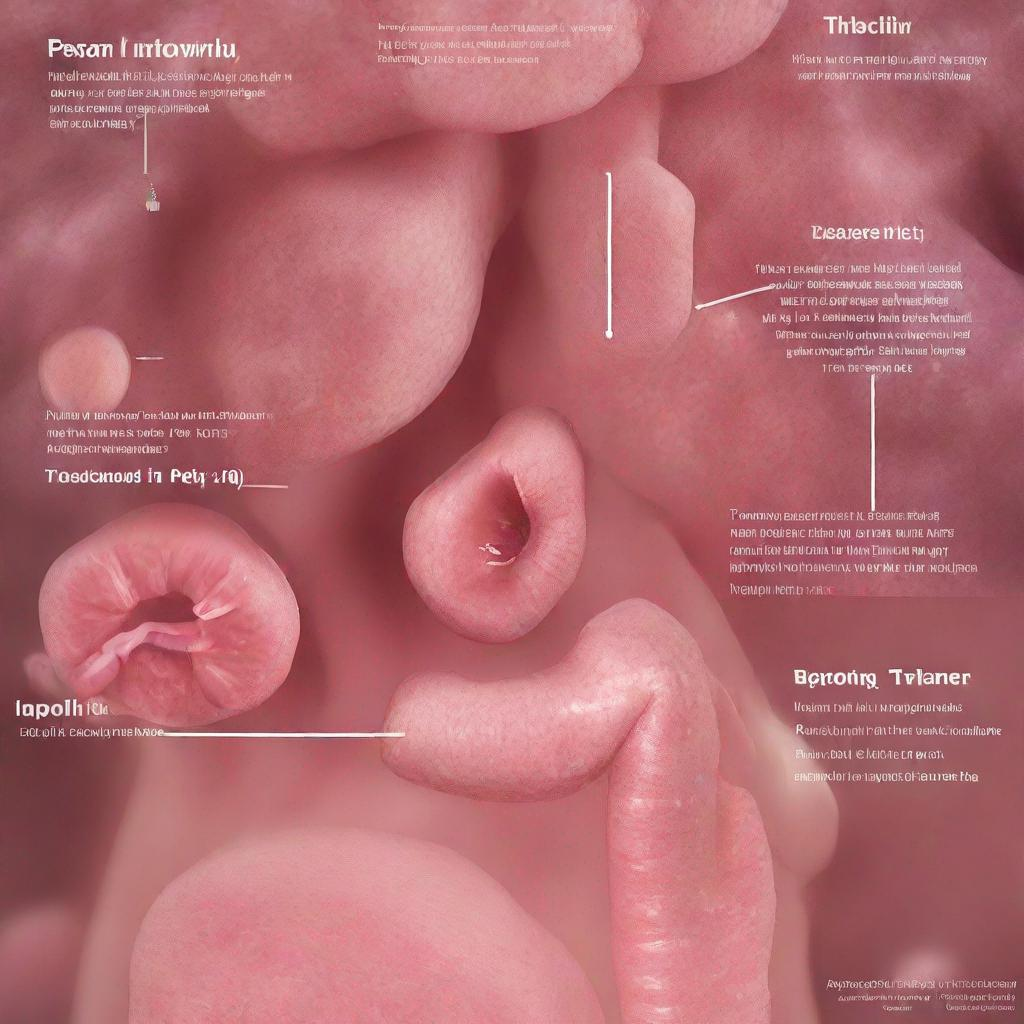## Anencephaly: A Congenital Brain Abnormality
**Introduction**
Anencephaly is a serious birth defect characterized by the absence of a major portion of the brain and skull. It is a neural tube defect that occurs during early pregnancy when the neural tube fails to close properly at the top of the embryo.
**Symptoms**
* Absence of the cranial vault (skull bone)
* Exposed brain tissue (a sac-like protrusion at the top of the head)
* Protruding eyeballs
* Inability to swallow
**Diagnosis**
* **Amniocentesis:** A procedure to withdraw amniotic fluid from the uterus to test for genetic abnormalities.
* **Chorionic villus sampling:** A procedure to remove a small sample of tissue from the placenta to test for genetic abnormalities.
* **Ultrasonography:** A non-invasive imaging technique to visualize the fetus in the uterus, helping to detect structural abnormalities.
* **Magnetic resonance imaging (MRI):** A more detailed imaging technique to confirm the diagnosis.
**Prevention**
Anencephaly is highly preventable with adequate folic acid supplementation before and during pregnancy. Folic acid is a B vitamin that plays a crucial role in the healthy development of the neural tube.
**Treatment**
There is no cure for anencephaly. Treatment focuses on providing supportive care and palliation:
* **Supportive care:** Providing comfort and managing complications, such as seizures and respiratory distress.
* **Palliative care:** A specialized medical approach that focuses on improving the quality of life for individuals with life-limiting conditions.
**Complications**
* Severe neurodevelopmental disabilities
* Intellectual disabilities
* Seizures
* Respiratory distress
* Feeding difficulties
* Death
**Related Conditions**
* **Holoprosencephaly:** A condition in which the brain fails to divide into two hemispheres.
* **Hydranencephaly:** A condition in which the brain is replaced by a fluid-filled sac.
**Prognosis**
Anencephaly is a fatal condition. Most infants with anencephaly die before or shortly after birth.
**Genetic Counseling**
Given the genetic component of anencephaly, genetic counseling is highly recommended for families affected by the condition. Genetic counselors can provide information about the inheritance pattern, recurrence risks, and available testing options.




